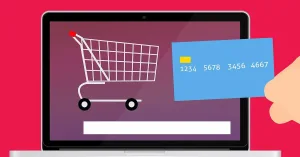If you have a small business and are looking for financing, or maybe you are getting ready to launch your new small business, the Rules of Thumb blog from MoneyThumb wants to share 17 ways you can finance your small business. These 17 tips come from BFS Capital. Here is the link to the full list of 17 ways for financing your small business. For your convenience, we have listed the first 7 below:
1. Crowdfunding
Crowdfunding is a fairly new way to raise money, but it’s one that plenty of entrepreneurs have already used with great success. If you’re not familiar with this concept, it involves posting your idea online and setting financial goals that must be met within a specific timeline to bring your idea to life. This gives the general public the opportunity to pledge their own money to help you meet these goals, subsequently making your business dream possible.
While some people choose to donate simply because they believe in your product or service, others need a little incentive to part with their cash. That’s why some funds-seeking entrepreneurs offer enticements, such as free products and other perks, once the business is up and running to attract more donors.
Because there are a variety of different crowdfunding sites from which to choose, it’s important to select the one that can potentially bring about the best results. The most highly recommended crowdfunding sites include but are not limited to:
- Kickstarter - With more than 12.5 million financial backers providing more than $3 billion to date, this site offers emerging entrepreneurs a large pool of potential supporters (and money) for a variety of “creative projects.”
- GoFundMe - While Kickstarter has guidelines about what you can raise money for, GoFundMe doesn’t appear to have the same constraints. This allows you to request financial support for more types of business needs.
- Indiegogo - The nice thing about Indiegogo is that this platform was created specifically for entrepreneurs intent on starting their own businesses, which means that your campaign should be more tailored to individuals in your current position.
- Fundable - This crowdfunding platform was also designed with the small business owner in mind. It provides the opportunity to seek support from investors who are more likely to appreciate your exact needs.
2. Small Business Grants
The great thing about small business grants is that you don’t have to pay them back. Once you receive the money, it’s yours to use to kick off your small business plan (within the parameters of the grant, of course). It just takes a bit of searching on your part to find one that is a good fit. Not to worry, though, because there are many good resources available to help.
For instance, for research-based grants in your area of business, the U.S. Small Business Administration offers Small Business Innovation Research (SBIR) and Small Business Technology Transfer (STTR) grants, both of which may be helpful. And if you’re a woman intent on owning a small business, there are grants designed specifically for you.
3. Angel Investors
An angel investor is someone who provides financial backing for entrepreneurs and small startup businesses. This person is often a former entrepreneur or professional themselves, and they provide new businesses with more than just financial assistance. They can also give business-related guidance and offer connections to their own valuable resources and contacts.
To increase the likelihood of gaining funding from an angel investor, it’s necessary to know your business inside and out while also having a solid business plan. As you’re going through this process, it’s important to be truly passionate about your business so you’re able to convey that passion. When presenting your business, you should also avoid jargon and be succinct so that your potential investor is completely clear on your wants, needs, and goals. If you’re not sure how to locate an angel investor to help finance your new small business, one option is AngelList. This website makes it easier for angels to invest their money in new startups like yours, giving you both the opportunity to build your company.
4. Venture Capitalists (VC)
A venture capitalist is an investor who, in part, provides capital to startup ventures largely because they stand to make money if the company becomes successful. So, how is a venture capitalist, often referred to as simply a VC, different than an angel investor? VCs are typically more involved in the business (sometimes requiring a board seat) than angel investors. They also tend to put up more cash—typically in the millions—and take longer to secure because they require a greater amount of time when evaluating the risks associated with funding the new venture.
If this option sounds appealing to you, it’s important to find a VC with complementary goals and management styles to yours, because you’ll be working closely together. It’s also important to select one with a good reputation, especially for helping out when the going gets tough. You’ll also want to arrange for an in-person meeting, during which you should be honest about the financial risks you (and they) will face, offering ways to reduce them up front.
5. Family and Friends
Another common way to finance a small business is to ask for help from family and friends. As your biggest supporters, they often take less convincing than an angel investor or VC because they already know what you’re capable of and they want to see you succeed. When approaching a loved one for help financing your small business, be sure to have a formal business plan in place before you start asking for money. Also, know the amount you need and where and how you intend to spend it. Be ready to share this information, because it will show your family member or friend that you won’t mismanage their money should they decide to give or lend it to you.
It’s also crucial to keep in mind that borrowing money from people you have personal relationships with can impact how you get along. Instead of being someone you just laugh and joke with or attend family gatherings to see, they become a creditor to your business. This changes the dynamics and has the potential to create personal issues, so be aware of this before entering into this type of relationship.
6. Factoring (Invoice Advances)
Factoring can be a cost-prohibitive way to raise funds for a business and is often used by those with poor credit. What is factoring? It basically involves selling your receivables (your open invoices) at a discount to get up-front cash, similar to how cash advance companies pay a discounted amount today for a paycheck or money payout you’re due at a later date.
Companies that choose this method of cash advancing generally pay a fee or a percentage of the total amount due for the open receivables. Because this means that you’re giving up a portion of the monies due owed to you, this isn’t always the best option. However, if you’re having difficulties financing your small business, it’s worth considering.
7. Your Personal Savings
If you have a large sum of cash sitting in your savings account, then it may be possible to finance your small business venture yourself. This enables you to start your company without owing anyone else. It can also save you a lot of interest along the way. Should you decide to take this route, it’s critical that you don’t cut yourself so short that your family suffers if an unexpected expense arises. For this reason, always keep enough in your account to survive car and home repairs, unforeseen medical bills, and other similar emergencies.
With those 7 great options for financing your small business, it is hard to believe that there are actually 10 more ways listed in that article. Here is the link again to the full list. In addition to the 17 ways to finance your small business, BFS Capital also offers a free 13-page e-book on their website titled Small Business Money Management Guide. Here is the link to download that free e-book.





















Add comment